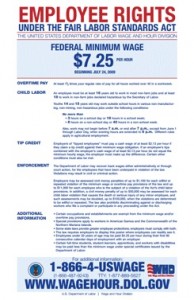
What can all businesses stand to learn from the recent debacle surrounding Sony Pictures and the film The Interview? The recent email hacking against Sony Corporation had a significant damaging effect on the company and its operations. Not only did the hacking lead to the disclosure of many confidential projects, it also exposed several embarrassing communications by top executives that included less than flattering opinions of the company’s movie stars and put lucrative business dealings at risk.
When considering this and other recent security breaches, fundamental questions emerge:
- If a company as big as Sony can have its email systems hacked and disseminated across the internet, how vulnerable are your business’s communications to a cyber attack?
- What steps can you take to protect your business?
- If those steps fail, what are the potential legal ramifications and how can you reduce your exposure to those legal liabilities?
Don’t Leave Your Business Exposed
Short of spending millions on cyber security, which is beyond the reach of many small and medium size companies, there are things you can do to reduce the risk that your company correspondence will wind up in the public eye. You may want to start with IT Security and end with educating your employees.
For little or no cost, there are several data security programs on the market that help keep passwords secure. By using an electronic master code for one password and locking all the other passwords inside a sort of electronic vault, individual employees can create unique passwords for each application or need, and store all of their passwords on a phone or other device. This can better protect individual documents and passwords from being leaked. And especially sensitive documents can be encrypted. As an example, password encrypted email portals are commonly used in the medical field to communicate information to and from patients.
Employees can also be taught to recognize phishing and other suspect computer activity and to avoid viewing websites that are not securely locked.
Emails Are Evidence
Executives, and rank and file employees alike, may not realize that electronic communications may be used in a court proceeding and are subject to discovery.

It was not too long ago that businesses thought of emails as simply an alternate, faster, more informal mode of communication between co-workers and customers. However, over the past few decades, emails have become the most prevalent form of communication and in many instances have been held admissible in court. In one of the most notorious legal examples, Microsoft’s Antitrust Litigation showed that even Bill Gates, then Microsoft CEO, did not understand the legal significance of emails. Not realizing that such communications were admissible in court led one of the richest men alive and the founder of Microsoft to disclose his intention to thwart dealings between Web Services Interoperability Group and Sun Microsystems. This is not an isolated incident. Businesses constantly misuse their emails not realizing the damage these emails could cause in court. Businesses should take care to make sure that certain information is not disclosed in emails or such communications may be used against them in a legal proceeding.
Protect Your Business Professionalism and Image
Working with employees to maintain a professional image throughout all company correspondence can have a positive affect and avoid a negative impact on a company’s reputation.
There seems to be a prevailing assumption that e-mail is less formal than a standard letter; emails often lack proper punctuation and grammar, and include incomplete sentences. Unclear or inaccurate information in the subject line can lead to confusion. An email’s tone can cause even the intended reader to receive the wrong message. In our fast-paced society, accuracy sometimes gives way to speed in electronic communications. In some instances, the reply all button is hit too quickly and emails are sent to unintended recipients. This can put sensitive information in the wrong hands and cause misunderstandings or other issues. For added legal protections, consider adding a disclaimer to all e-mails stating, if the communication reaches an unintended party, they are to disregard the communication and contact you immediately.
Additionally, using business email for non-business related communications cuts down on productivity and can be misinterpreted as representing the business. Sending e-mail jokes, forwards or chain letters on company time to friends, coworkers or even customers, often shows a lack of professionalism and may reflect poorly on the company’s image. Inappropriate or poorly worded emails can cause a marketing disaster and leave a company open to liability that can significantly affect the bottom line. Even when an email is used appropriately for business and purposely sent outside a business as correspondence, a poorly written email, or one that includes damaging or inaccurate information can leave a company vulnerable to a bad reputation and legal risks as well.
Be Proactive
Allow your electronic communications to work for your business, not against it. By creating a company policy and guidelines for employees on how to use e-mail appropriately in the workplace, many of these problematic issues can be avoided, or at least the adverse impact on your business can be minimized.  Before sending emails, consider having employees ask themselves  “Would I want a jury reading this email?â€Â If the answer is no, they may want to revise that email before hitting send. If you have any concerns, contact Hecht Walker today to review your communication policy and guidelines.
















 When leasing commercial space, many people don’t realize you pay for more than just the actual square footage you will occupy. In many commercial leases, and particularly in retail and industrial space leases, extra fees are often referred to as “Common Area Maintenance” (CAM) fees. These CAM fees serve to offset the landlord’s cost of the Common Area shared by the tenants.
When leasing commercial space, many people don’t realize you pay for more than just the actual square footage you will occupy. In many commercial leases, and particularly in retail and industrial space leases, extra fees are often referred to as “Common Area Maintenance” (CAM) fees. These CAM fees serve to offset the landlord’s cost of the Common Area shared by the tenants.

